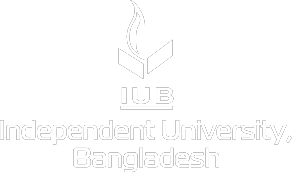BUS 201: Introduction to Business
3 credits | Prerequisites: None
Course rationale
This course has been designed to give the students a general overview of today’s business world. It incorporates three major components. (i) It orients students on all major business concentrations (e.g., finance, accounting, management, marketing, international business, human resource management, and management information system). (ii) It capacitates students in formulating a comprehensive business plan. (iii) It enables students to conduct efficient and effective business communication. By delving into these three units of the course, students will be able to fine-tune their direction and choice of career in business.
Course content
This course will cover basic concepts of today’s business world. Students will understand What is Business, Business & Entrepreneurship, the Objectives of Business, Factors of Production, Ethics and Law, Corporate Social Responsibilities of Business, Types of Business Environment, Managing Business Ethically, 21st Century Diversity Issues; Types of economic systems, pros, and cons of capitalism, socialism, and communism, key economic indicators; How to Form a Business, Advantages, and Disadvantages of all forms of businesses; Entrepreneurship and related risks, home-based businesses, small business operations, managing a small business, business plan, sources of funds; Levels of Management, Important skills for different level management, Leadership Styles, Empowering workers, Building Customer Satisfaction; The Marketing Mix, B2B, and B2C Market, Market Segmentation, Pricing Strategies, Break-Even Analysis, Total Fixed Costs, Variable Costs.
Marketing Intermediaries, Channel of Distribution and Types of Intermediaries, Retail Distribution Strategies, Promotion Mix; Key Steps Of Financial Planning, Financial Forecasting, Budgeting And The Types Of It, Why Firms Need Financing, Short-Term Financing, Debt Financing, Equity Financing, Compiling Income Statement; Determining HR Needs, Recruitment & Selection Process, Compensation & Benefits, Training & Development, Performance Appraisal, Motivating Employees; Components of IS, fundamental roles of IS, IT in business, marketing system. Manufacturing information system, HRM system, accounting information system, financial information system; Organization Structures, Departmentalization, Cross Functional Self-Managed Teams, Organizational/Corporate Culture, Production Process, Operations Management Planning; Why trade with other nations, forms of international business, theory of absolute and comparative advantage, strategies to reach the global market, GATT, WHO and common markets; Introducing business communication with special focus on the writing process; Learning to form professional CV/Resume, Cover Letter, Meeting Minutes and E-mails; Introducing samples of written business communication.
Course objectives
The main objectives of this course are (i) to give the students a general overview of today’s contemporary
business world (ii) to orient students on all major concentrations/functional components of a business (e.g. finance, accounting, management, marketing, international business, human resource management, and management information system) (iii) capacitate students in formulating a comprehensive business plan (iv) and enable students to conduct efficient and effective business communication. By delving into the course, students will be able to fine-tune their direction and choice of career in business.
References
- Textbook : Understanding Business, 10th International Edition by William G. Nickels, James M. McHugh and Susan M. McHugh, McGraw-Hill Irwin Publication
- Reference Books
1. Introduction to Business by Betty Jean Brown, John E Clow, 1st edition (2007), published by Glencoe McGraw-Hill.
2. Introduction to Business by Jeff Madura, 4th Edition (2006), published by South-Western College Pub.

